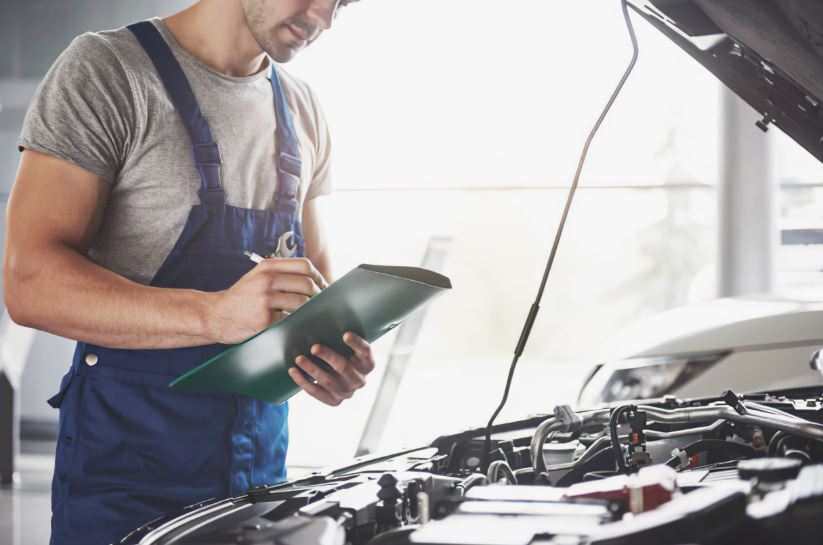Your Mechanic’s Checklist: What You Should Know First
Whether you’re driving a brand-new vehicle or relying on an older model to get through your daily commute, keeping your car in top condition is essential. But before handing over your keys to a mechanic, it’s important to understand what should be checked, why it matters, and how to ensure your car is receiving the right attention. Having a clear checklist can help save time, avoid unexpected costs, and even extend the life of your vehicle.
If your vehicle is constantly in and out of the garage, and you’re facing rising repair bills, it might be time to consider alternatives such as cash for cars Melbourne, where you can turn your old vehicle into instant money and move on to something more reliable.
Why a Pre-Service Checklist Matters
Before taking your car to the mechanic, having a basic understanding of what needs attention empowers you as a vehicle owner. A checklist acts as your quality control guide—ensuring nothing is overlooked, and every component is assessed thoroughly. It also allows you to ask informed questions and verify that essential areas of your car are being inspected and serviced properly.
The Mechanic’s Checklist: Essential Points
Let’s break down the must-know items that your mechanic should inspect and discuss with you during a service.
Fluid Levels and Condition
Fluids are the lifeblood of your car. From engine oil to transmission and brake fluids, low or dirty fluid levels can lead to significant damage. Ask your mechanic to check:
- Engine oil (level and color)
- Coolant/antifreeze
- Transmission fluid
- Brake and power steering fluids
- Windshield washer fluid
Dirty or low fluids are a sign of potential trouble and should be addressed promptly.
Brake System Inspection
Brakes are crucial for your safety. Any unusual noises, sponginess, or delayed stopping must be taken seriously. The mechanic should inspect:
- Brake pads and discs
- Brake fluid condition
- Brake lines for leaks
- Handbrake performance
Timely attention to your brakes can prevent accidents and save money in the long term.
Tires and Wheel Alignment
Worn or under-inflated tires reduce traction and increase the risk of blowouts. Mechanics should check:
- Tire pressure and tread depth
- Signs of uneven wear
- Alignment and balance
- Spare tire condition
Rotating tires and ensuring proper alignment can extend tire life and improve fuel efficiency.
Battery and Electrical Systems
Your car’s battery powers everything from ignition to the electronics. Key checks include:
- Battery charge and terminal condition
- Headlights, brake lights, and indicators
- Dashboard warning lights
- Alternator and charging system
A weak battery may not always show signs before failing—routine checks prevent breakdowns.
Belts and Hoses
These parts may seem minor but are vital for your engine’s operation. Mechanics should assess:
- Serpentine and timing belts
- Radiator and heater hoses
- Cracks, frays, and signs of wear
- Tension and fit of all belts
Neglecting belts and hoses can result in breakdowns or engine overheating.
Exhaust System
Your exhaust not only reduces noise but also controls emissions and improves fuel economy. Ensure your mechanic checks:
- Muffler and exhaust pipe condition
- Emission system performance
- Mounting and connection integrity
- Presence of any leaks or rust
A faulty exhaust system can be dangerous and may lead to failed emissions tests.
Filters
Clogged filters restrict airflow and fluid movement. Mechanics should inspect:
- Engine air filter
- Cabin air filter
- Fuel filter
- Oil filter
Replacing filters regularly boosts engine performance and cabin comfort.
When to Ask Tough Questions
If your mechanic recommends additional services, always ask:
- Why is this necessary?
- What happens if it’s not done now?
- Can you show me the damaged/worn part?
A trustworthy mechanic will be transparent and educate you rather than rush you into repairs. It’s also good to get a second opinion for costly repairs, especially if your car is aging and repairs are stacking up. In such cases, many people consider the best wreckers Melbourne option to cut losses and upgrade their vehicle.
Know Your Car, Extend Its Life
Every car has its own quirks and care requirements. Understanding your vehicle’s service manual and maintaining a record of repairs can help you:
- Predict future maintenance
- Avoid unnecessary replacements
- Negotiate fairly with your mechanic
- Enhance resale value
Being proactive in your car’s maintenance is just as important as taking it to a professional.
Final Thoughts
A mechanic’s checklist isn’t just for professionals—it’s for you. Knowing what your car needs before stepping into the workshop helps you stay in control, saves money, and builds a trustworthy relationship with your service provider. Whether you choose to invest in repairs or decide it’s time to move on from your aging car, being informed helps you make smarter, safer decisions.

